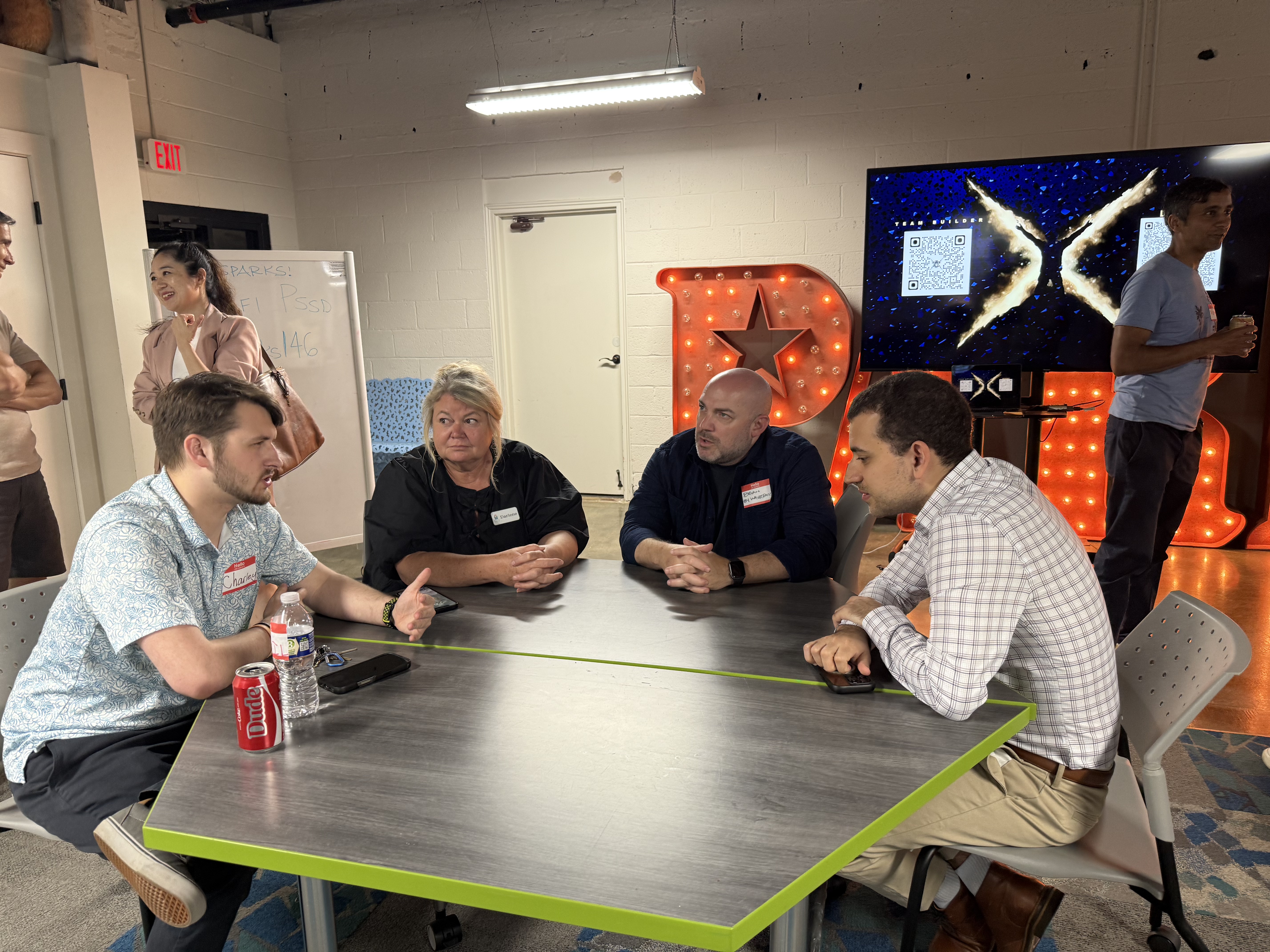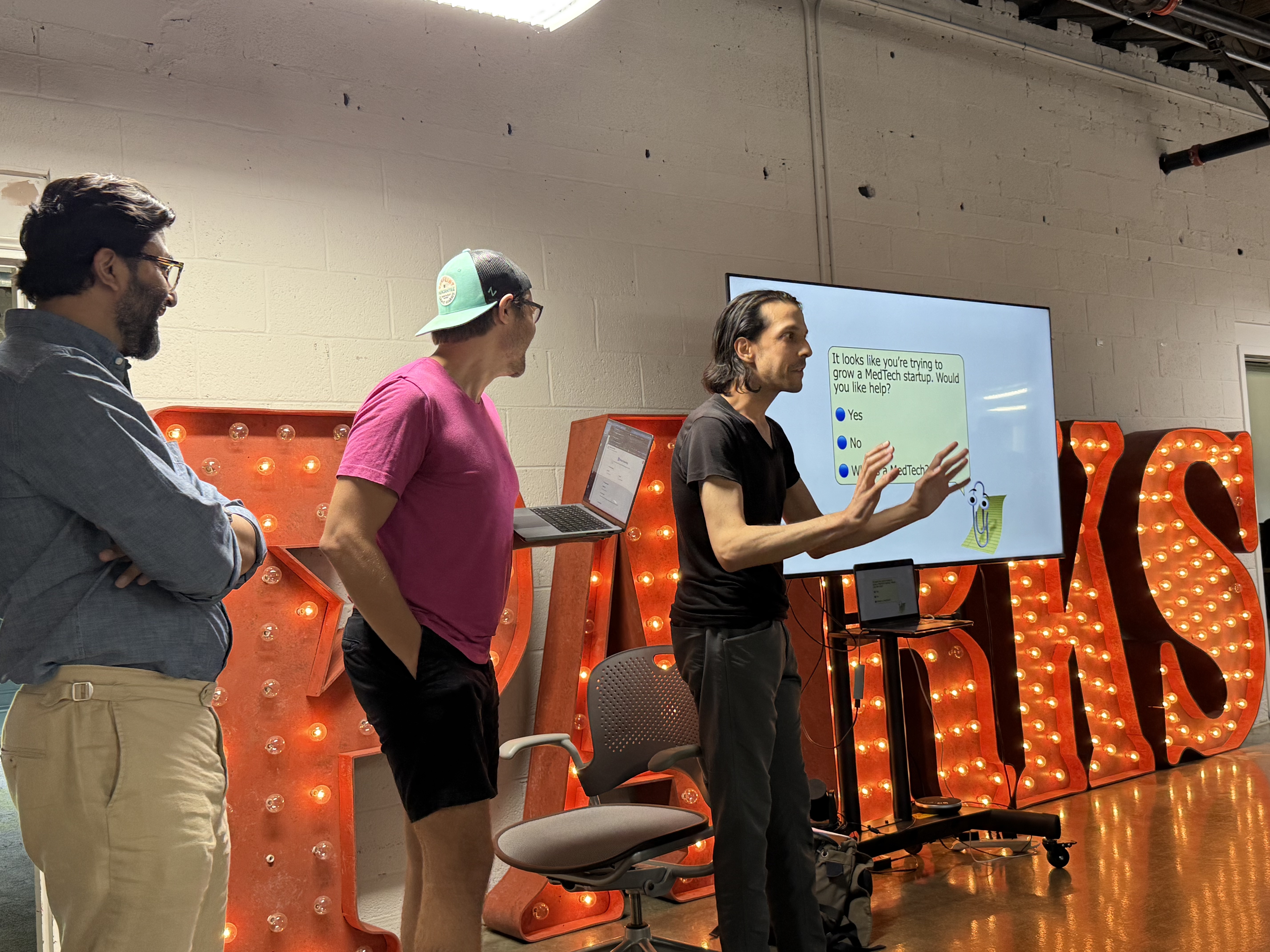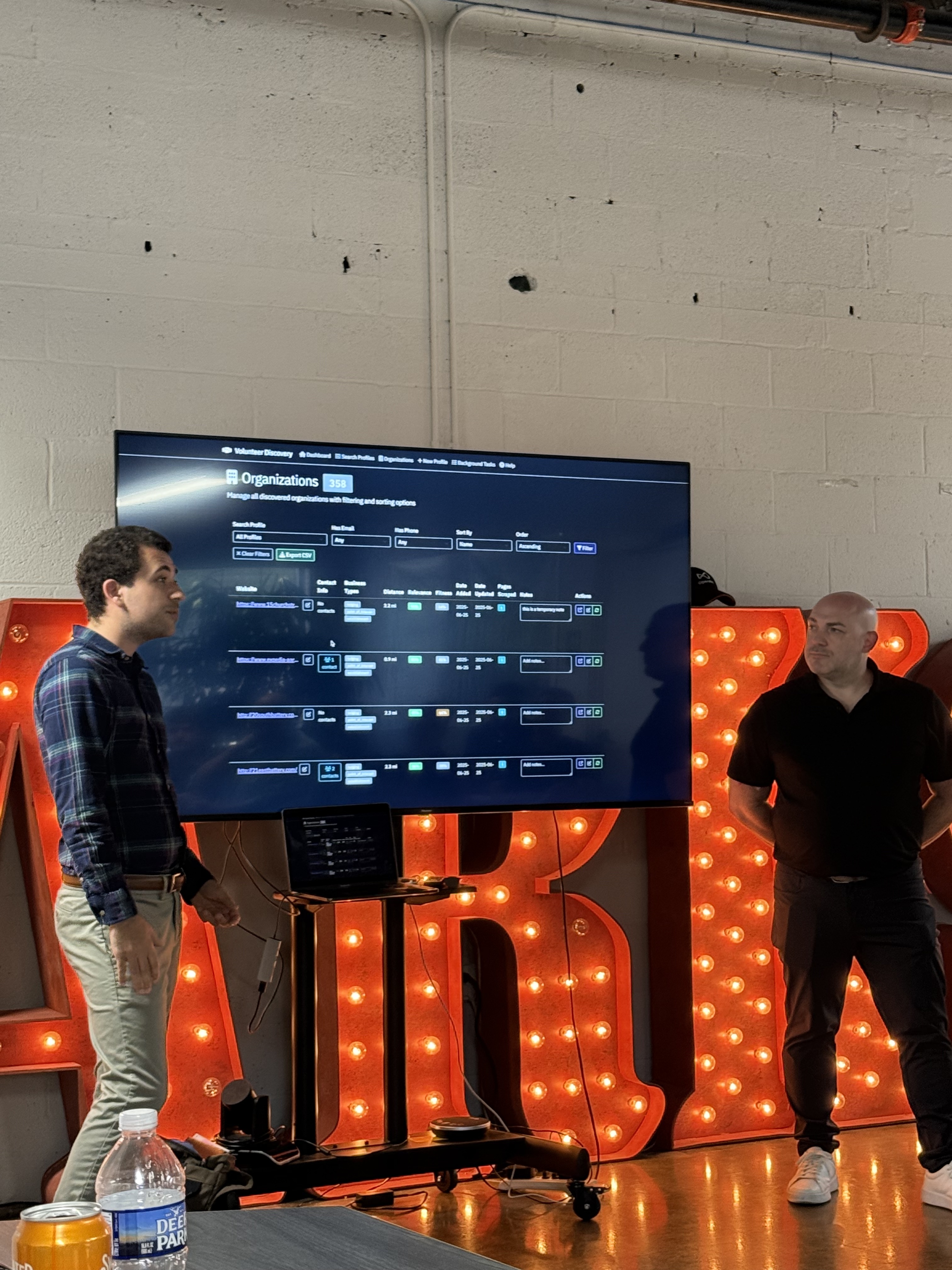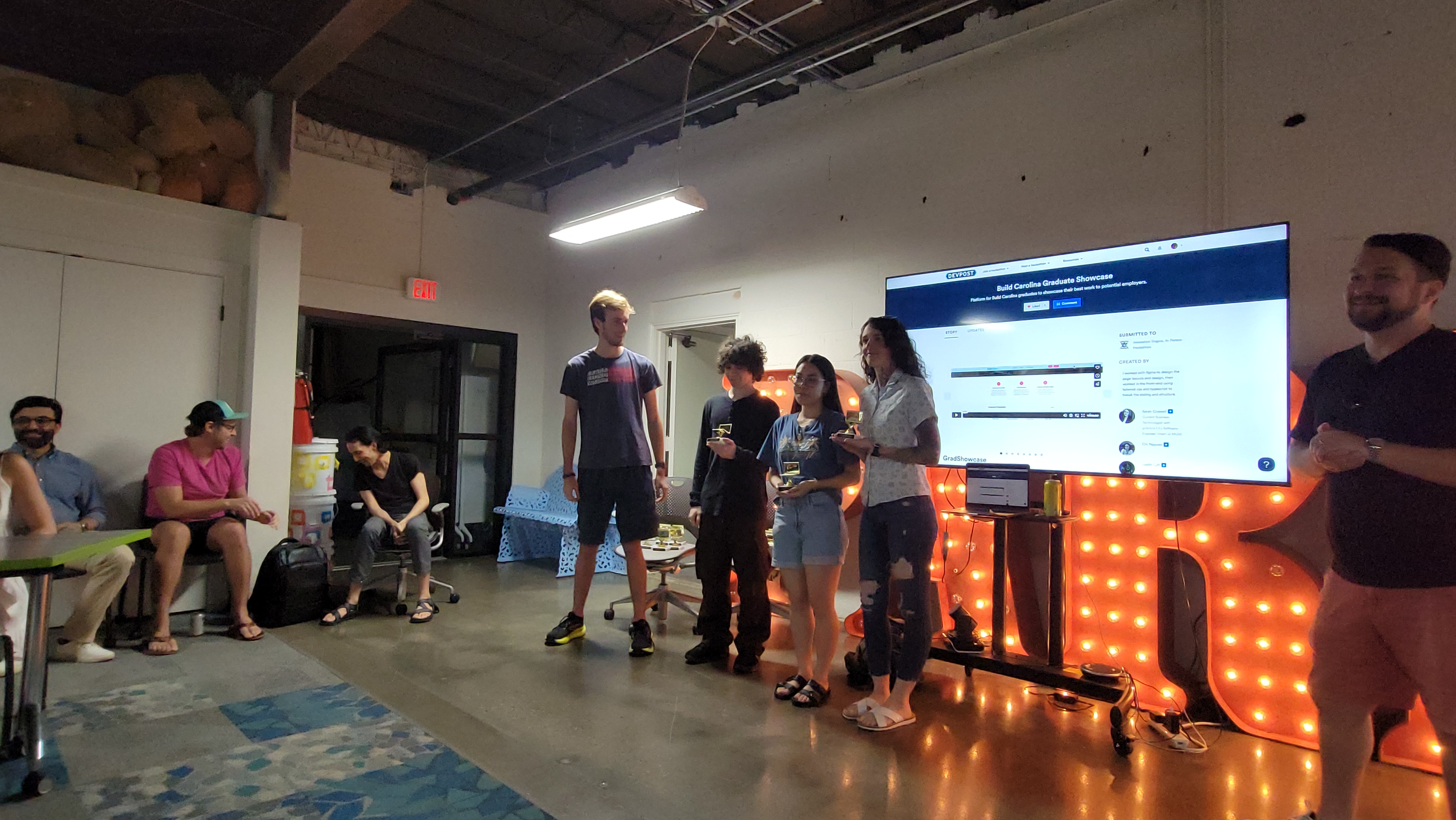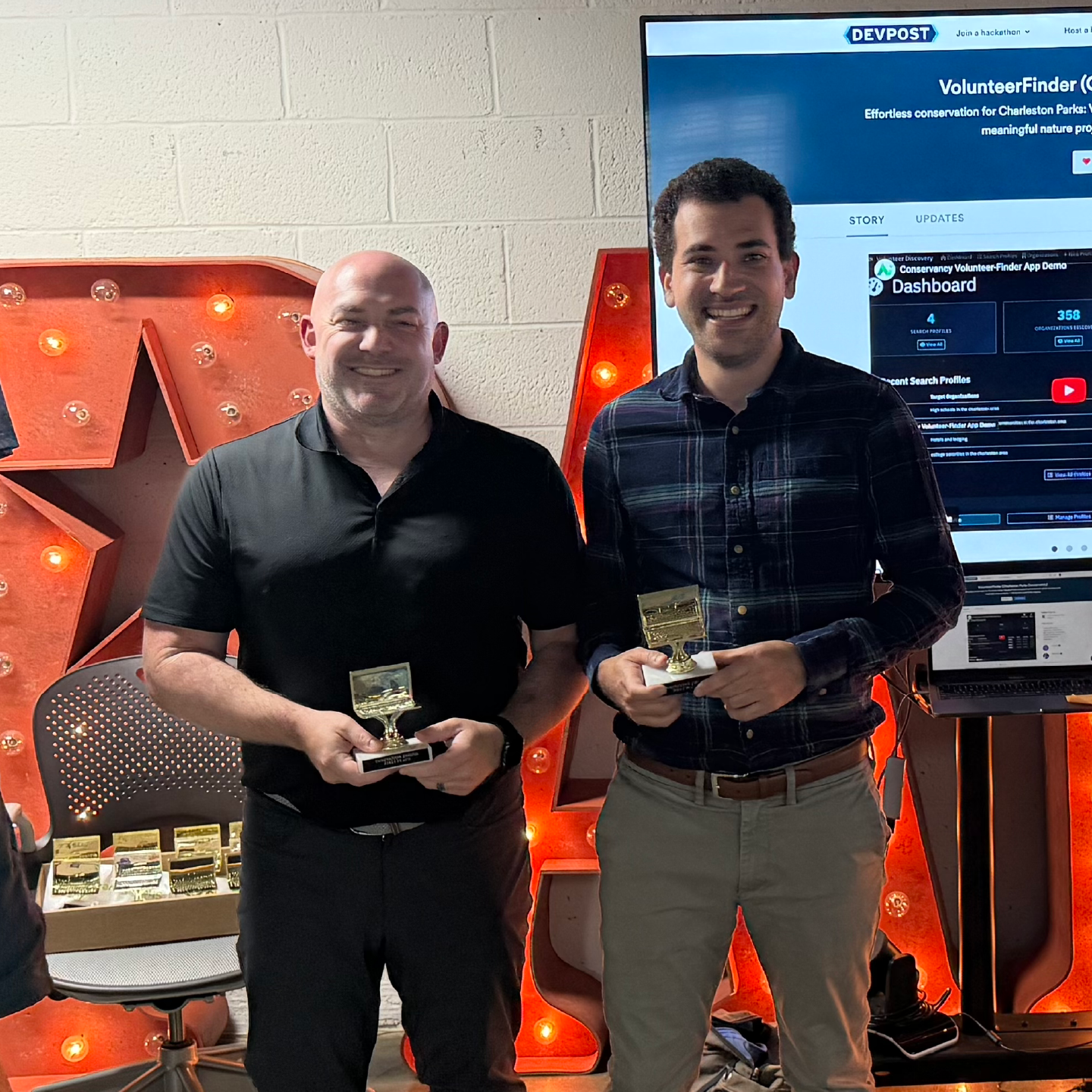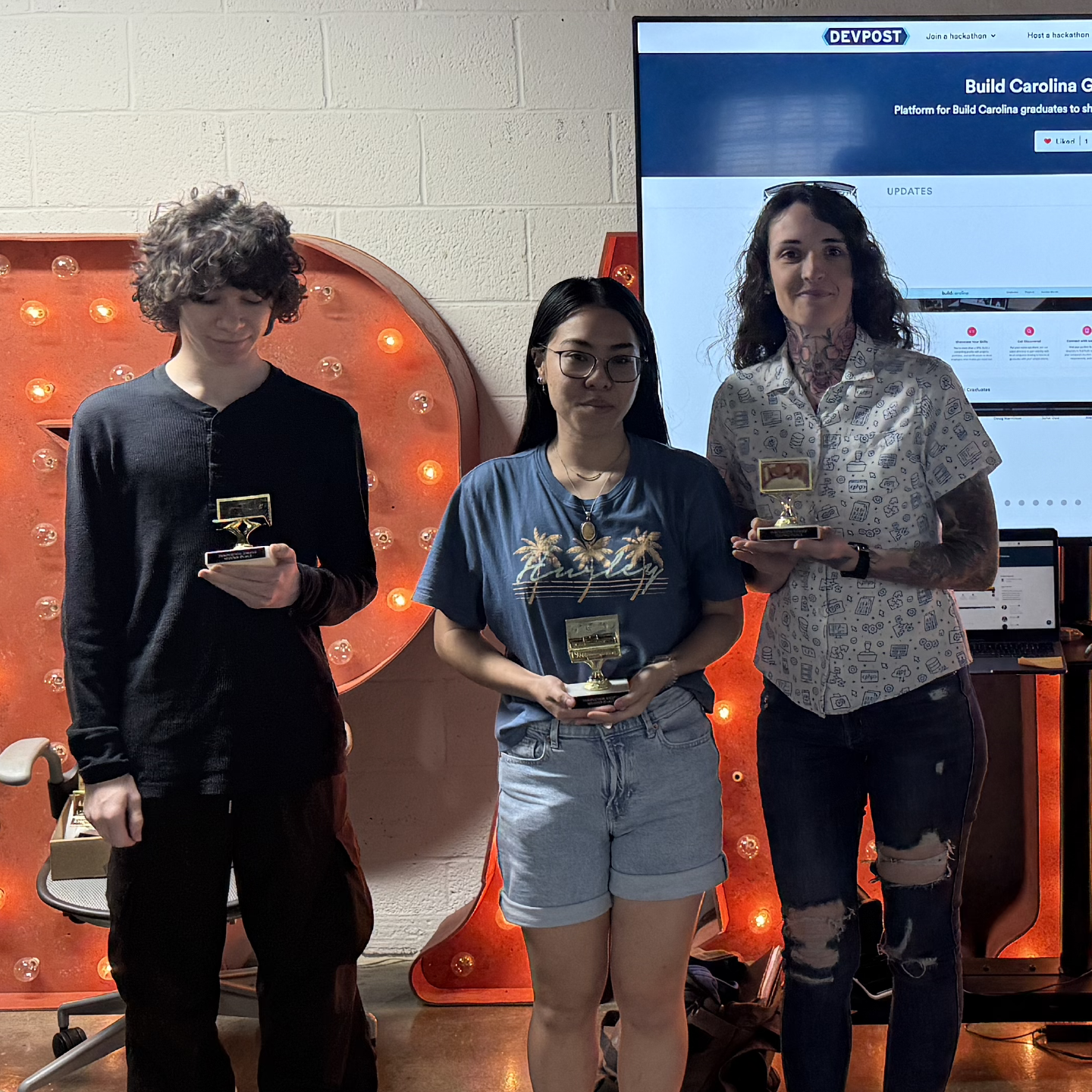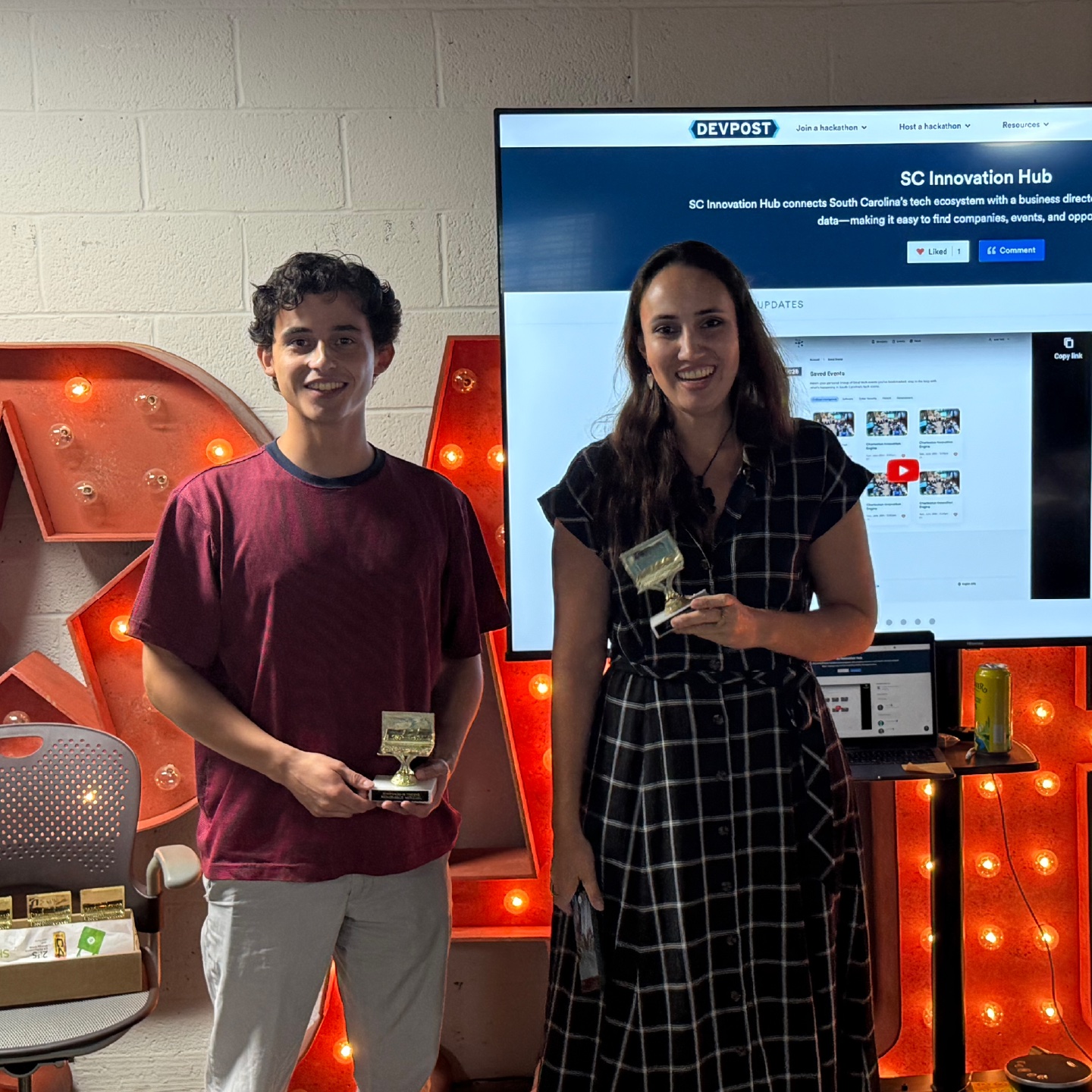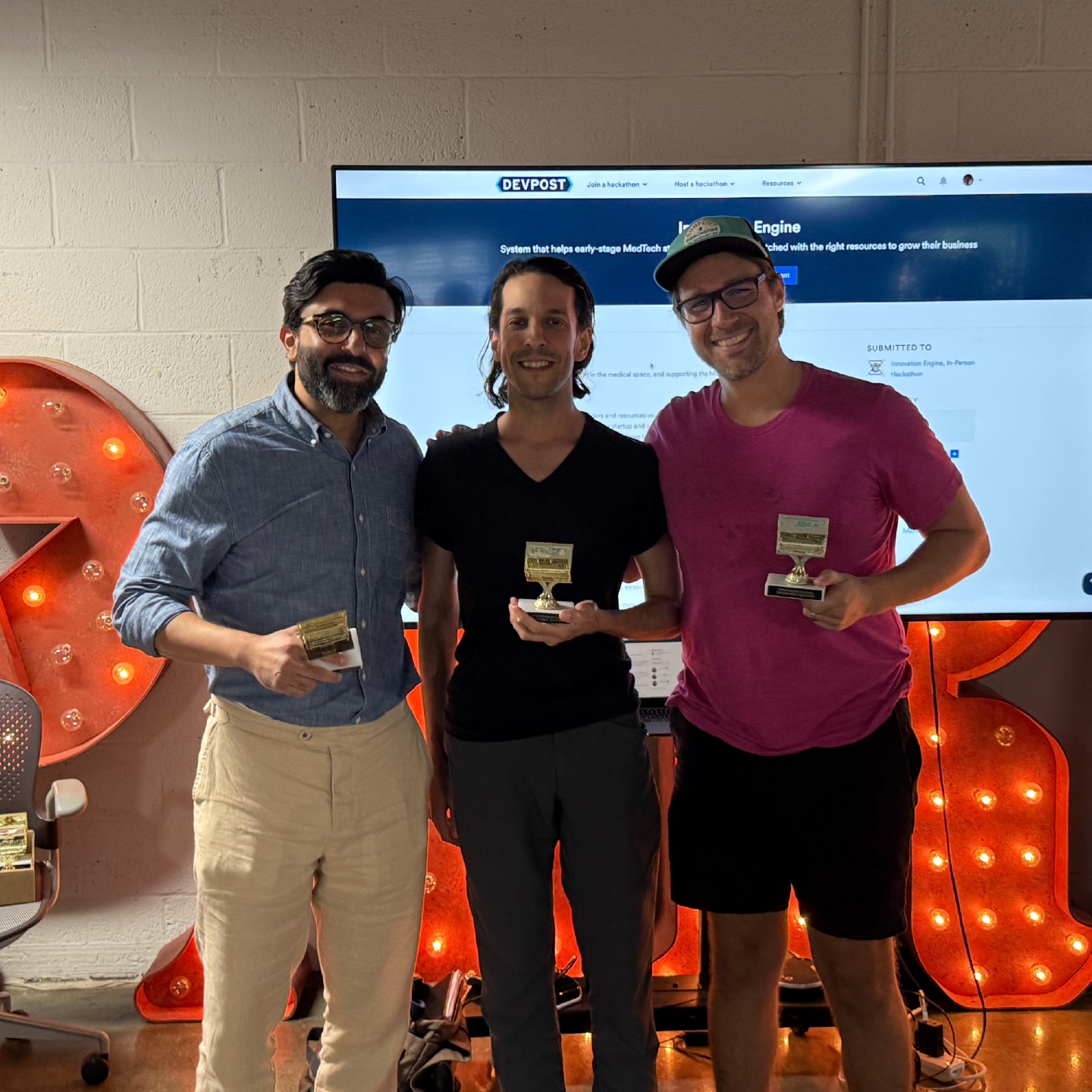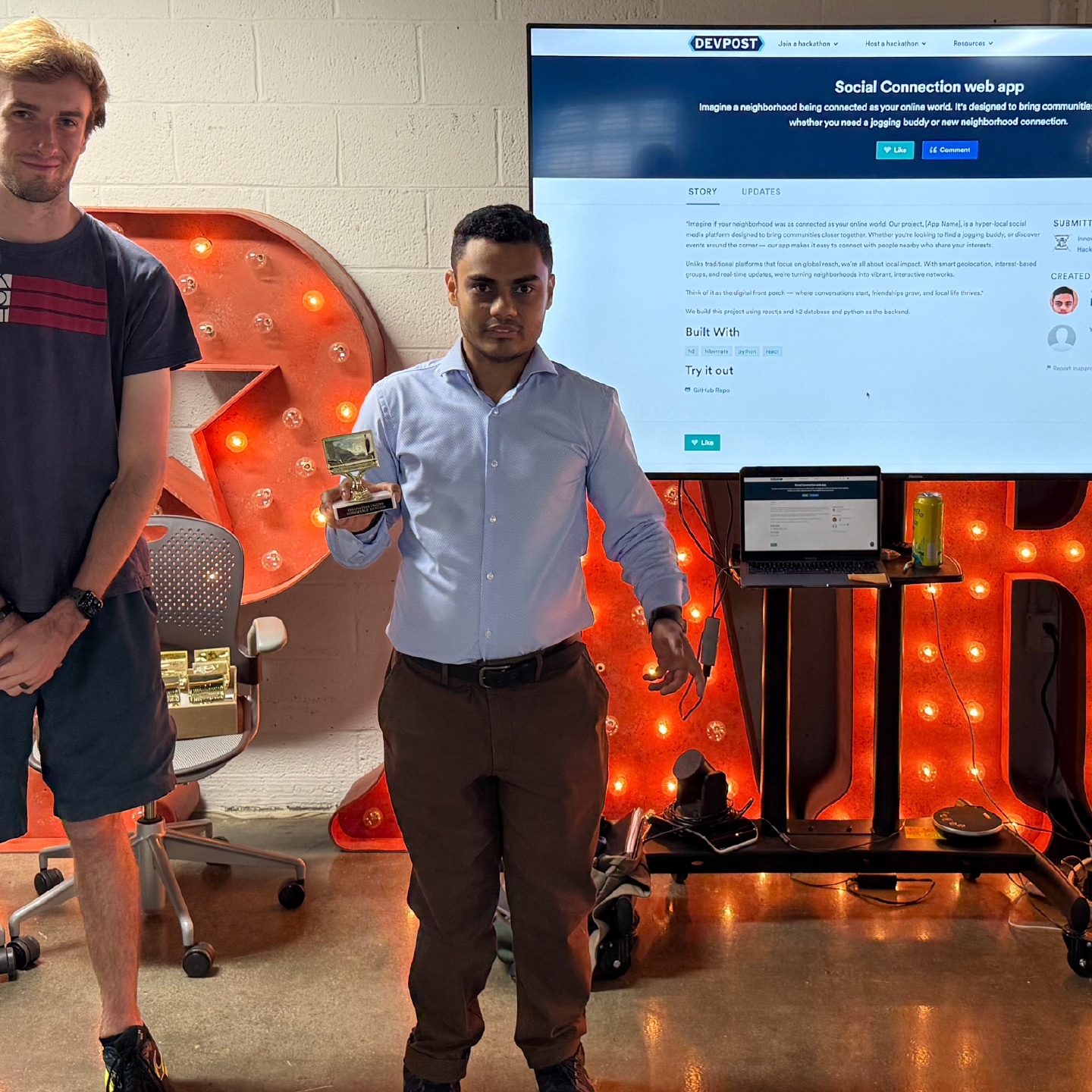

About the Challenge: 5 software solutions built over 1 month, 5 organizations, 6 challenge statements. On June 29th, at the Charleston Parks Conservancy, we wrapped up the CharlestonHacks Innovation Engine, a month-long journey where local builders and stakeholders joined forces to solve real challenges across Charleston. Leaders like Darlene Heater (Charleston Parks Conservancy), Matt Brady (Town of Mount Pleasant), Kaity Miller (Build Carolina), Doug Hamilton (MUSC Human-Centered Design), and Jamie DeMent (SC Council on Competitiveness) submitted pressing problems and collaborated with teams throughout the process. Our builders stepped up, forming teams around challenges that mattered most and applying their talents in design, development, strategy, and research. The result? Real, deployable software solutions, and a city reminded of its own potential.
“The Innovation Engine is a blueprint for how communities can design real solutions together. This hackathon brings out the best in Charleston, where technologists, designers, and civic leaders work side by side to tackle real, unmet needs. We’re proud that MUSC’s Human-Centered Design team could play a part in that mission.”
– Doug Hamilton, MUSC Human Centered Design Program
About the Event: The CharlestonHacks Innovation Engine Hackathon is a month-long collaborative experience held in June, hosted at the Charleston Parks Conservancy. It unites designers, developers, strategists, and civic advocates to co-create solutions for real-world challenges submitted by community leaders.
Stakeholders who provided challenge statements included:
– Jamie Dement – SC Council on Competitiveness
– Darlene Heater – Charleston Parks Conservancy
– Matt Brady – Town of Mt. Pleasant
– Kaity Miller – Build Carolina
– Doug Hamilton – MUSC Human-Centered Design
Participants (“builders”) formed teams on-site or through the online Team Builder platform, then spent the month designing impactful projects. Top teams were recognized with prizes and awards. This hackathon is unique because the challenges come directly from the community, ensuring the work is deeply relevant and grounded in actual need.

 View Full Photo Album
View Full Photo Album
